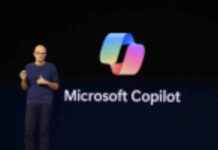Michigan State University recently conducted a groundbreaking study that sheds light on the power of the placebo effect in managing stress and anxiety. The research, led by a team of experts in the Department of Psychology, revealed that nondeceptive placebos can effectively reduce stress levels, even when administered remotely. This finding has significant implications for individuals facing prolonged stress, particularly in the context of the ongoing COVID-19 pandemic.
Understanding the Placebo Effect
The placebo effect is a phenomenon in which a patient experiences improvements in their condition after receiving a treatment that has no therapeutic effect. While traditional placebos are often given without the patient’s knowledge, nondeceptive placebos involve providing individuals with a placebo while fully disclosing that it is not an active medication. The MSU study focused on the impact of nondeceptive placebos on stress and anxiety levels, particularly in the context of remote administration.
The Study Design
For the study, participants experiencing prolonged stress related to the COVID-19 pandemic were recruited to take part in a two-week randomized controlled trial. Half of the participants were assigned to a nondeceptive placebo group, while the other half served as the control group and received no pills. The nondeceptive placebo group interacted with a researcher through virtual sessions on Zoom and received placebo pills in the mail, along with instructions on how to take them.
The results of the study, published in Applied Psychology: Health and Well-Being, revealed significant reductions in stress, anxiety, and depression among the nondeceptive placebo group compared to the control group. Participants reported that the nondeceptive placebos were easy to use and suitable for their situation, highlighting the potential benefits of this intervention for individuals facing mental health challenges.
Implications for Mental Health Care
The researchers involved in the study are optimistic about the potential of nondeceptive placebos to improve mental health outcomes, particularly when administered remotely by healthcare providers. This approach has the advantage of scalability, making it accessible to individuals who may not have access to traditional mental health services. By leveraging the power of the placebo effect in a transparent and ethical manner, healthcare providers can offer effective interventions for managing stress, anxiety, and depression.
Jason Moser, a co-author of the study and professor in MSU’s Department of Psychology, emphasized the importance of addressing long-term stress to prevent the onset of mental health problems. He noted, “Exposure to long-term stress can impair a person’s ability to manage emotions and cause significant mental health issues in the long run. We are excited to see that an intervention as simple as nondeceptive placebos can lead to significant benefits for individuals facing stress, anxiety, and depression.”
Darwin Guevarra, another co-author of the study and a postdoctoral scholar at the University of California, San Francisco, highlighted the potential of remotely administered nondeceptive placebos to reach individuals in need of mental health support. He stated, “The scalability of remotely administered nondeceptive placebos has the potential to help individuals struggling with mental health concerns who may not have access to traditional services. This innovative approach could pave the way for more accessible and effective interventions in mental health care.”
Conclusion
The MSU study on nondeceptive placebos and their impact on stress and anxiety levels offers valuable insights into the potential of leveraging the placebo effect for mental health interventions. By providing individuals with transparent information about the placebo treatment, healthcare providers can harness the power of the mind to promote well-being and alleviate psychological distress. As research in this area continues to evolve, the use of nondeceptive placebos may become an integral part of mental health care, offering a simple yet effective tool for managing stress and anxiety.













